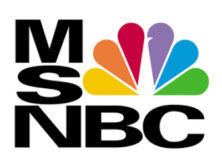
Eligibility questions arise in National Enquirer Pulitzer bid.
The hubbub over National Enquirer’s plan to enter its coverage of John Edward’s extramarital affair for a Pulitzer Prize has subsided now that the Pulitzer Prize board has said the tabloid is ineligible.
However, disqualification on a technicality (National Enquirer calls itself a “magazine” on its Web site) doesn’t quell other questions about whether the narrowness of Pulitzer Prize guidelines limits the Prize’s ability to uphold its mission—to honor great news reporting.
The Pulitzer submission rules explain,
Entries for journalism awards must be based on material coming from a text-based United States newspaper or news site that publishes at least weekly during the calendar year and that adheres to the highest journalistic principles. Magazines and broadcast media, and their respective Web sites, are not eligible.
According to ABC News, “The tabloid said it plans to submit its stories to the prize for consideration by the Feb. 1 deadline anyway.”
“It’s clear we should be a contender for this,” Enquirer Editor Barry Levine told the Washington Post, arguing “we’ve had every aspect of reporting, from pursuing financial documents to stakeouts to cultivating sources.”
Steve Safran at Lost Remote writes, ‘I’m not going to defend The National Enquirer as being anything more than it is. But when it breaks a news story, as it did with the John Edwards paternity scandal, it deserves to be recognized…. Yes – it calls itself a “magazine,” but so what? Isn’t the quality of the information far more important that the technicality of what the news medium calls itself?” he asks.
PoliticsDaily.com’s Emily Miller wrote, “The National Enquirer is a supermarket tabloid, but the time has come for the media elite to admit that it has an excellent investigative reporting team, which broke the biggest political scandal of 2009.”
Some of what National Enquirer demonstrated in its coverage of the John Edwards affair does seem to reflect parts of what the Pulitzer Committee looks for in exemplary journalism. The prize for investigative work is to be awarded to “a distinguished example of investigative reporting.” The Enquirer’s aggression in breaking the Edwards story long before mainstream media attention was paid to the Senator’s affair certainly distinguishes it as a particularly dogged investigator. The paper (oops, “magazine”) also reported thoroughly on the scandal while other media held off. National Enquirer staff was, unarguably, devoted to this story and expended considerable effort in investigating it to the fullest.
However, the Pulitzer rules also explain the prize “is to be given to an entrant that adheres to the highest journalistic principles.”
In an interview with Levine on NPR’s On the Media, Bob Garfield discusses aspects of National Enquirer‘s history of reporting that may not live up to the Pulitzer’s standards of “principles,” Garfield says to Levine,
…There have been a bazillion lawsuits and a quadrillion threatened lawsuits, perhaps some settled and, you know, kind of a sorry history of invention, fabrication and just getting the story wrong. So you don’t disagree that The Enquirer, when it wants to compete with The New York Times and mainstream news organizations, has a fair amount to live down, do you?
Kevin Smith, president of the Society of Professional Journalists, told ABC News that “no paper that pays for information should be eligible for the prize.” They write,
“The National Enquirer has a serious credibility issue. The one time they landed a big fish does not diminish … that they have a credibility issue,” he said.
The prize board has also taken a position against papers that blur the lines of journalistic ethics. In the late 1970s, it did not award the Chicago Sun Times the prize for an undercover expose in which a reporter pretended to work at a bar in order to catch officials taking bribes.
Levine argues checkbook journalism shouldn’t be a disqualifier. He tells Garfield, “We look at the value of paying money for credible information that we can corroborate with other sources, like the police or law enforcement, in attempting to get information that might lead to a conviction of a bad guy. We make no bones about it.” Journalism Ethics Professor Edward Wasserman also recently wrote on the issue of paying sources, suggesting the practice may be more complicated than ‘payment=unethical.’ Still paying for information is not widely accepted as among the highest journalistic principles.”
Safran at Lost Remote admits, the Enquirer may not actually deserve a Pulitzer. But the fact that they’re disqualified from winning one on a technicality raises the possibility that at some point, some other online news site that doesn’t meet the Pulitzer’s rules for eligibility might actually write something worthy of being recognized. “I am concerned that the continued snobbery of the Pulitzer committee will stop great reporting from the recognition it deserves,” he writes. “We all know the cachet that comes from ‘winning a Pulitzer.’ It’s time for the committee to interpret Pulitzer’s true intent – to honor great news regardless of where it comes from.”






